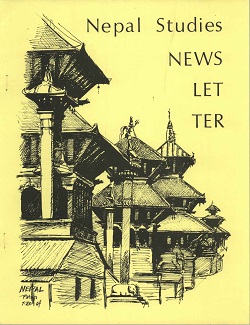Author Biography
Georgina Drew is a Lecturer (Assistant Professor) in the Department of Anthropology and Development Studies at the University of Adelaide in South Australia. From 2011-2013, she served as a Postdoctoral Fellow at The New School’s India China Institute where she helped coordinate a project on Everyday Religion and Sustainable Environments in the Himalaya with funding from the Henry Luce Foundation. Georgina’s work is centered in issues of environmental subjectivity, gender and sustainable resource management, social movement studies, and the cultural and religious politics of development. She has also coordinated research in various Himalayan locations in China, India, and Nepal.
Abstract
Studies of the relationship between religion and ecology are either highly enthusiastic about the ways that religious belief can motivate sound resource management or skeptical of the connection. Using an everyday religion approach, this text takes a middle ground to show that resources are variously interpreted in daily life and that religious orientations, while potentially supportive of environmentally sound action, are but one source of influence. Drawing from fieldwork, the discussion employs practice theory to look at how water resources in a Himalayan township are understood and the ways that notions of responsibility for sacred and profane waters are changing. The text aims to show that resource degradation is not necessarily indicative of contradictions in belief. This assertion pushes us to think more critically about the importance of everyday terrains of discourse and action, including how resource perceptions and management activities are influenced by structural constraints.
Acknowledgements
I offer heartfelt thanks to Mr. Jayhari Srivastava, a lifelong Uttarkashi resident, who served as an assistant for the fieldwork outlined in this article and for portions of my PhD research from 2008-2009. His input and expertise was invaluable. I also extend my gratitude for funding from the Henry Luce Foundation and the Provost Office of The New School. Finally, I offer my sincere appreciation to Thomas J. Mathew, who provided comments on the paper, to the blind reviewers who gave suggestions for improvement, and to the editors of the journal Himalaya for their unfailing support, guidance, and encouragement.
Creative Commons License

This work is licensed under a Creative Commons Attribution 3.0 License.
Recommended Citation
Drew, Georgina. 2016. Beyond Contradiction: Sacred-Profane Waters and the Dialectics of Everyday Religion. HIMALAYA 36(2).
Available at:
https://digitalcommons.macalester.edu/himalaya/vol36/iss2/11
Figure 1: Image of the River Ganga Flowing Through Uttarkashi, Photo By Author, 2009
Kandar Devta Dholi.jpg (464 kB)
Figure 2: Devotees Prepare to Worship Kandar Devta in his Dholi on the Occasion of Makar Sankranti, Photo by Author, 2014


